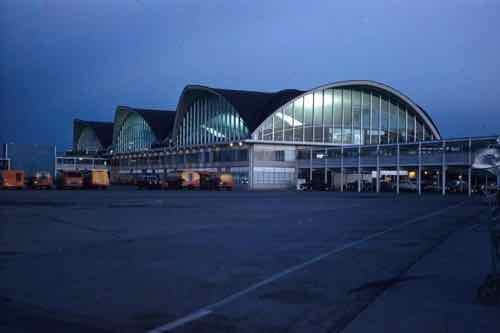St. Louis Lambert International Airport Needs An Open Regional Approach, Not Private Shareholders
Recently St. Louis Mayor Lyda Krewson announced the process to consider bids to privatize St. Louis Lambert International Airport, which began with her predecessor, was dead. To many of us this was a good thing.

Whenever I’d post about airport privatization a reader would post a comment like this:
What the vast majority of people who oppose privatization don’t know is that — in spite of the airport bringing in significantly more revenue than expenses — the City of St. Louis only gets roughly $6 million towards general revenue.
The 1994 FAA reauthorization bill banned airports from taking airport revenue and using it for non-airport uses. St. Louis is one of about a dozen airports which were grandfathered in, but are limited to the amount of money they took at that time, adjusted for inflation.
If the airport were privatized, all revenues from the lessor would be able to go towards general revenue — which would be significantly more than the $6 million a year today.
So basically this is preventing St. Louis from pulling too much money out of the airport, requiring most revenue to service airport debt and to reinvest.
Privatization would enable more money to be siphoned out of the airport — money the winning bidder would cheerfully send to their shareholders, out of state/country home office, donate to friendly politicians, and pay former politicians working as consultants. The city would also get more revenue for new trash trucks, etc. Would private management at the airport enable it to generate more revenue than it currently does to offset the money leaving the airport? Perhaps, perhaps not.
Airports are important to the region they serve. The City of St. Louis is a small part of the region — both population and land area. Decisions made about the airport should place the interests of the region ahead of shareholders.
Airports, it seems, are the new convention centers — pressure to keep up with others. A recent story on this:
The average airport in the U.S. is now 40 years old, and experts estimate $128 billion in new investment is needed over the next five years just to keep up with the growing number of flyers.
Van Cleave asked Barnes, “Things stay the way they are now, will a traveler’s experience at U.S. airports get better or worse in the years to come?”
“Quite frankly, we think it’ll get worse,” she replied.
That fear has led to a nationwide building boom, with major overhauls in progress at nearly 50 airports – including Orlando, Chicago, Los Angeles, and Salt Lake City. (CBS News)
Our airport an important asset for the city & region. Rather than go down the privatization route, the city & region need to have open dialog about what we want from our airport, set goals. Then we need brainstorming on ways to achieve these goals.
Not a backdoor process designed to enrich the few players. We need to reach a consensus on the problems and possible solutions. Not sure this is even possible in our city/region.
Here are the non-scientific results of the recent Sunday Poll:
Q: Agree or disagree: Mayor Krewson should not have abruptly ended the privatization process without first reviewing some bids.
- Strongly agree: 2 [9.52%]
- Agree: 1 [4.76%]
- Somewhat agree: 0 [0%]
- Neither agree or disagree: 1 [4.76%]
- Somewhat disagree: 1 [4.76%]
- Disagree: 5 [23.81%]
- Strongly disagree: 11 [52.38%]
- Unsure/No Answer: 0 [0%]
I’m glad the process stopped when it did because I can hear elected officials saying “It’s too late to stop now” has it continued. Remember, always follow the money.
— Steve Patterson